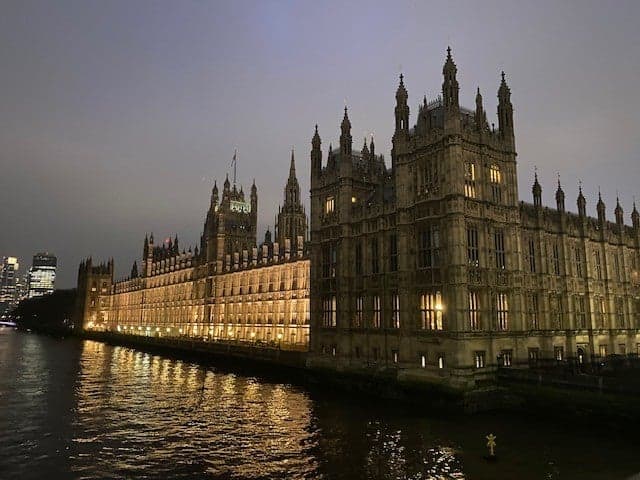Conservatives accuse government over tax rises
A Conservative motion criticising the government for increasing taxes, calling on them to reaffirm that personal tax thresholds will be uprated in line with inflation once again from 2028–29, and urging them “not to introduce new taxes on the value of assets owned such as savings, homes and pensions” has been voted down by Labour MPs.

Sir Mel Stride, Shadow Chancellor of the Exchequer, opened the Conservative Opposition Day debate on 15 July, accusing the government of placing “£25 billion-worth of taxation on businesses up and down our country”. He said that, in opposition, Labour had proposed to freeze council tax, yet “we have seen in the latest spending review a £7 billion increase in council tax levied across this Parliament”.
Citing calculations by the Adam Smith Institute, the shadow minister said that the tax forgone as a consequence of departures by the wealthy is equal to the tax paid by around half a million people on average earnings. “The Labour party has no plan to stem that exodus of talent and wealth creation”, he claimed, calling on ministers to rule out introducing a wealth tax.
The shadow minister’s concerns were echoed by a number of Conservative MPs, including the former Chancellor, Jeremy Hunt, Graham Stuart and Luke Evans.
The Chief Secretary to the Treasury, Darren Jones, blamed the Conservatives for 14 years of “waste and decline.” He suggested that Labour has “fixed the foundations” and stabilised the public finances while protecting working people against higher taxes on their pay slips. He outlined the government’s measures to inject more cash into public services, including ending tax breaks for private schools and reforming the taxation of non-doms.
Wendy Morton (Con) intervened to ask for a definition of ‘working people’, to which Jones responded, “A working person is someone who goes to work”.
On the concern for small businesses, the minister said that the introduction of changes to employer national insurance contributions was “weighted with changes” in the threshold for payment, with the aim of reducing the burden on smaller businesses. He emphasised that the government’s fiscal rules are “non-negotiable”, stating that “day-to-day government spending should be paid for through tax receipts, which is the sound economic choice and also the fair choice”.
Sarah Olney (Lib Dem) acknowledged that the government has had to make some difficult decisions, however she urged the Treasury to take a look at the measures set out in last year’s Liberal Democrat manifesto to raise revenue in a “fair way”. Those included increasing taxes on the biggest and wealthiest corporations and the big banks, and ensuring that the wealthiest people are taxed effectively. These would be as well as rebuilding the UK’s relationship with the EU to negotiate a bespoke customs union, which could bring £25 billion of extra tax revenue annually, she suggested.
A number of Labour MPs, including John Grady, Melanie Ward, Joe Powell and Phil Brickell, defended the government's approach to taxation. Brickell in particular supported government efforts to crack down on tax-dodging, stating that “Firms that promote aggressive tax avoidance schemes will now be held to account with fines of up to £1 million. I welcome that measure”.
Brickell proposed three policy priorities for the Treasury's consideration, including reviewing and reforming current tax reliefs, pressing British overseas territories to introduce public registers of beneficial ownership and considering a flat rate of, say, 30%, for pension tax relief for all.
Brickell also rejected what he called “the siren calls of a broader wealth tax”, noting the findings of the Wealth Tax Commission and suggesting that the government “should instead crack down on tax evasion, simplify the tax code, streamline existing reliefs and bring capital gains tax levels closer to income tax”. He cited Centre for the Analysis of Taxation estimates that closer alignment of capital gains and income taxes alone could raise some £14 billion for the Exchequer”.
However another Labour MP, Brian Leishman, advocated for the introduction of a 2% annual wealth tax on those with net assets over £10 million, suggesting this single policy could raise £24 billion a year.
Jim Allister (TUV) voiced concerns about the changes to business property relief, in particular in Northern Ireland, where 89% of businesses are micro-businesses and “instead of planning for growth [they] are now having to plan for death”. Llinos Medi (Plaid Cymru) offered a similar message, saying that the policy will cause ‘huge damage’ in Wales and asking the government to stop it before it is implemented. Dave Doogan (SNP) urged the government to “pause and review” the changes to inheritance tax.
Closing the debate for the Conservatives, Shadow Chief Secretary Richard Fuller said his party’s motion “provides the government with an opportunity to draw a line, recognise the overreach and errors in their taxation policies, and give some hope to the makers in our society and those who work hard”. He stated that “the Chancellor thinks that she knows best, and despite taxes being at their highest rate on record, she is on the hunt for new taxes… Tax, tax, tax, tax—it is always the same with a Labour government”.
The Exchequer Secretary to the Treasury, James Murray, defended the government’s policies and suggested that both the Conservatives and Reform are making “unfunded promises on tax”, which would lead to economic chaos and hit working people hardest.
The Conservative motion was put to a vote and rejected by 165 votes to 342.
The full debate can be read here.
